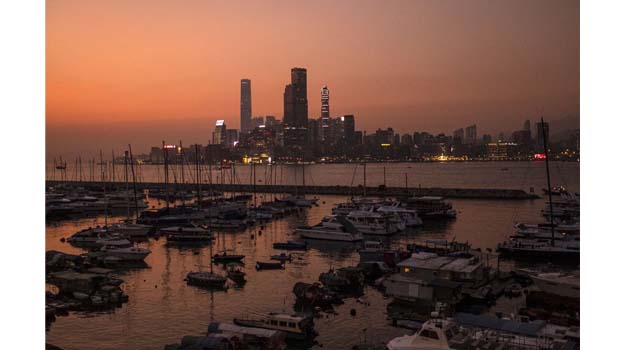HK could be a loser from trade deal

As the gateway for China’s trade with the world for more than 70 years, Hong Kong might be expected to benefit from the phase one deal that Beijing will sign with Washington on Wednesday. Chances are, things won’t pan out that way.
Consider the $200 billion increase in Chinese imports from the US over the next two years that Washington hopes to see as a result of the agreement. Such a rise would involve nearly doubling inbound trade.
That’s difficult, but not impossible. China’s imports of chicken, pork and beef have already been unusually low in recent years due to trade disputes that mostly predated the Trump administration, as we’ve written. Remove barriers to agricultural purchases and Chinese imports from the US could be $35 billion to $53 billion larger, according to a 2018 study by academics at Iowa State University, more than halfway toward the $100 billion-a-year target.
It may take a while to ramp farm production up to those levels -- on the flip side, however, meat prices this year are likely to be higher than the researchers expected, thanks to the protein gap that’s emerged in China as a result of African swine fever. Other sums could be added on top: Returning soybean purchases to pre-trade war levels alone would add $10 billion. Ensure the US gets 10 percent of China’s purchases of crude oil and liquefied natural gas, and you could easily get above $80 billion.
After that things get harder. Planes and automobiles might help, but the parlous state of China’s car market and America’s aerospace champion puts question marks over both.
In the mid-2000s, Hong Kong still vied with Singapore
for the title of the world’s busiest container port
before Shanghai pulled ahead in 2007,
followed by Shenzhen in 2013, Ningbo in 2015,
then Guangzhou and Qingdao in 2018
That’s where Hong Kong comes in. America’s largest trade surplus with any economy is with the port city, largely thanks to its role as an entrepot. About $10 billion of Hong Kong’s imports from the US are only pausing in the city en route to the mainland, and are Chinese imports in all but name. Beijing has considered rerouting that trade through mainland ports to plug the gap in the target, people familiar with the matter told Bloomberg News last month.
Things have already been heading in this direction for several years. In the mid-2000s, Hong Kong still vied with Singapore for the title of the world’s busiest container port before Shanghai pulled ahead in 2007, followed by Shenzhen in 2013, Ningbo in 2015, then Guangzhou and Qingdao in 2018. Tianjin may follow any day, driving Hong Kong to the edge of the top 10 global ports. Xiamen, which is deepening its ship channel to take the largest container vessels, may be next.
The push by US trade negotiators to further liberalize China’s economy, if anything, may be accelerating this shift. Cabotage laws have traditionally banned foreign-flagged vessels from carrying goods between mainland ports, even if the ship owner is Chinese. Moving a container between, say, Tianjin and Shenzhen is often easier and cheaper if it stops at a “foreign” port such as Hong Kong or Busan in South Korea, giving those cities a crucial role as transshipment points into China.
That’s changing, though: Shanghai won an exemption from the cabotage regulations in 2013, and now the government is reported to be considering further opening up the coastal trade amid lobbying from other ports. Under the latest revision of China’s foreign investment catalog in July, even entirely foreign-owned shipping companies are allowed to carry out domestic trade. On paper, the market for coastal shipping in China is now considerably more open than it is in the US.
All of that represents a profound challenge not just to Hong Kong’s status as a port, but to the city’s very economic model. Trading and logistics is one of the “four pillars” of Hong Kong’s economy, accounting for about one-fifth of the economy and total jobs -- a larger slice of value-add and employment than financial services, as my colleague Nisha Gopalan has written.
The trading business depends on its connectivity -- something that in turn is heavily related to volumes. If total traffic through Hong Kong keeps declining, port charges remain high, and coastal shipping moves more and more to other harbors, the industry that has kept the city’s working class employed through the decline of manufacturing will be staring at irrelevance.
David Fickling is a Bloomberg Opinion columnist covering commodities, as well as industrial and consumer companies.
Source: Bloomberg/The Korea Herald



